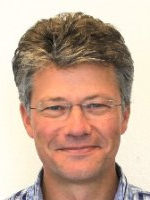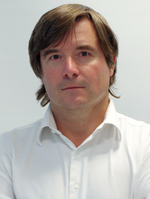The scientific program includes keynotes by leading researchers in the field (Lodewyk Wessels and Cesare Furlanello) and selected presentations of contest dataset analyses. The two-day meeting will also feature a social dinner with and opportunities for informal discussions.
Program (tentative)
Saturday, 22 July 2017
| 08:15 | ISMB Welcome | |
| 08:30 | ISMB keynote | James Sharpe, Centre for Genomic Regulation (CRG), Spain |
| 09:30 | Coffee break | |
| 10:00 | CAMDA Welcome | Joaquin Dopazo, Ministry of Health, Seville, Spain |
| 10:05 | CAMDA Keynote Molecular networks as determinants of response and outcome | Lodewyk Wessels, Netherlands Cancer Institute, Netherlands |
| 11:00 | The CAMDA Challenges | David Kreil, Boku University Vienna, Austria |
| 11:10 | Predicting clinical outcome of neuroblastoma patients using an integrative network-based approach | Léon-Charles Tranchevent, Luxembourg Institute of Health, Luxembourg |
| 11:30 | Predicting clinical outcomes in neuroblastoma with genomic data integration | Hilal Kazan, Antalya International University, Turkey |
| 11:50 | Accumulation of Potential Driver Genes with Genomic Alterations Predicts Survival in High-Risk Neuroblastoma | Chen Suo, Fudan University, Shanghai, China |
| 12:20 | Lunch break | |
| 14:00 | Multi-omics integration for neuroblastoma clinical endpoint prediction | Margherita Francescatto, FBK, Trento, Italy |
| 14:30 | Integration of Molecular Features with Clinical Information for Predicting Outcome for Neuroblastoma Patients | Yatong Han, Harbin Engineering University, China |
| 14:50 | Integration analysis based on survial associated co-expression gene modules for predicing neuroblastoma patients survival times | Kun Huang, The Ohio State University, U.S.A. |
| 15:10 | A multi-layer network approach to data integration for patient stratification | Maciej Kańduła, Boku University Vienna, Austria |
| 15:30 | Models of cell signalling uncover molecular mechanisms of high-risk neuroblastoma and predict outcome | Marta Hidalgo, FPS, Sevilla, Spain |
| 16:00 | Coffee break | |
| 16:30 | Predicting survival times for neuroblastoma patients using RNA-Seq expression profiles | Tyler Grime, University of Florida, U.S.A. |
| 16:50 | Integration of CNV and RNA-seq data can increase the predictive power of Neuroblastoma endpoint | Tieliu Shi, East China Normal University, Shanghai, China |
| 16:59 | Computational Approaches to Assessing Clinical Relevance of Pre-clinical Cancer Models | Vladimir Uzun, University of Sheffield, U.K. |
| 17:08 | Analysis of CAMDA RNA-seq data with the knowledge of protein domains in genes | Michał Okoniewski, ETH, Zurich, Switzerland |
| 17:17 | Microbiome Diversity on Materials | Chandrima Bhattacharya, Indian Institute of Engineering Science and Technology, Shibpur, India |
| 17:26 | Codon usage diversity in city microbiomes | Haruo Suzuki, Keio University, Japan |
| 17:35 | Unraveling bacterial fingerprints of city subways from microbiome 16S gene profiles | Susmita Datta, University of Florida, U.S.A. |
| 17:44 | Assessing reproducibility of metagenomics studies and diversity of public transport systems microbiome profiles of New York, Boston and Sacramento cities | Alina Frolova, The Institute of Molecular Biology and Genetics of NASU, Ukraine |
| 17:53 | Identification of mobile elements in metagenomic data | Josef Moser, ACIB, Vienna, Austria |
| 18:02 | CAMDA/ISMB poster session | |
| 19:30 | CAMDA Dinner |
Sunday, 23 July 2017
| 08:15 | ISMB Welcome | |
| 08:30 | ISCB 2017 Overton Prize Award Keynote | Christoph Bock, CeMM, Vienna, Austria |
| 09:30 | Coffee break | |
| 10:00 | CAMDA Welcome | Paweł Łabaj, Boku University; Austrian Academy of Sciences, Vienna, Austria |
| 10:10 | Strain-level bacterial and viral diversity in the MetaSUB dataset | Moreno Zolfo, CIBIO, University of Trento, Italy |
| 10:40 | Viral and eukaryotic communities of urban ecosystems across US metropolitan areas | Serghei Mangul, UCLA, U.S.A. |
| 11:10 | Assessment of urban microbiome assemblies with the help of targeted mock communities | Samuel Gerner, FH Campus Wien, Vienna, Austria |
| 11:30 | MetaBinG2: a fast and accurate metagenomics sequence classification method for samples with many unknown organisms | Yuyang Qiao, Shanghai Jiao Tong University, China |
| 12:00 | LAST + MEGAN-LR Approach to the Oxford Nanopore Wiggle Space Challenge | Caner Bagci, University of Tübingen, Germany |
| 12:30 | Lunch break | |
| 14:00 | CAMDA Keynote Towards a scientific blockchain framework for reproducible data analysis | Cesare Furlanello, FBK, Trento, Italy |
| 14:55 | ISMB Proceeding talk: Rectified Factor Networks for Biclustering of Omics Data | Djork-Arné Clevert, Bayer AG, Berlin, Germany |
| 15:25 | ISMB Proceeding talk: Applying meta-analysis to Genotype-Tissue Expression data from multiple tissues to identify eQTLs and increase the number of eGenes | Dat Duong, UCLA, U.S.A. |
| 15:55 | Voting for the Best Presentation Award | |
| 16:00 | Coffee break | |
| 16:30 | Future challenges in Big Data: Precision Medicine, Human Exposome, … | Wenzhong Xiao, Harvard Medical School & Stanford Genome Center, U.S.A. |
| 17:00 | Panel discussion: key insights & future challenges | |
| 17:40 | Award of the Camda Trophy | |
| 17:50 | Closing remarks, invitation to contribute to special proceedings issue | |
| 18:00 | ISMB poster session |
Keynotes
Lodewyk Wessels, PhD
Professor in Molecular Carcinogenesis Division, Netherlands Cancer Institute
Presentation Title: Molecular networks as determinants of response and outcome
Abstract: Precision medicine requires the mapping of clinical and molecular variables to response to (combination) treatment. The exact mechanisms involved in tumor development and therapy response, however, are still largely unclear. Here we report on two computational approaches we developed to systematically unravel these mechanisms based on high throughput datasets, and show these can be employed to predict response to anti-cancer agents. Our results obtained on the TCGA pan-cancer data and the GDSC1000 cell line drug screen bring precision medicine a step closer.
Short Bio: Prof. Lodewyk Wessels is the head of the Computational Cancer Biology group at the Netherlands Cancer Institute in Amsterdam, The Netherlands. His group focuses on developing novel computational approaches to exploit a wide variety of data sources to map out the cancer landscape, unravel its regulation and employ this knowledge the develop strategies for personalized treatment. Dr Wessels received his M.Sc. and Ph.D. both from the Department of Electronic and Computer Engineering, University of Pretoria, South Africa. From 1993 to 1997 he was a member of the Center for Spoken Language Understanding at the Oregon Graduate School of Science and Technology. In 1997 he joined the Faculty of Electrical Engineering, Mathematics and Computer Science at the Delft University of Technology and was appointed assistant professor in 2002. In 2006 he became a faculty member at the Netherlands Cancer Institute in Amsterdam, The Netherlands. He was appointed chair of Computational Cancer Biology at the Delft University of Technoilogy in 2012 and in 2016 as Deputy Director Research of the Netherlands Cancer Institute
Cesare Furlanello, PhD
Head of Predictive Models for Biomedicine & Environment, Fondazione Bruno Kessler, Italy
Presentation Title: Towards a scientific blockchain framework for reproducible data analysis
Short Bio: Cesare Furlanello is senior researcher at the Kessler Foundation (Trento, Italy), head of Complex Data Analytics and of the Predictive Models for Biomedicine and Environment research unit. He is a data scientist, active in the field of bioinformatics, combining machine learning methods with new data analytics infrastructures. He is a PI collaborator of international consortia such as the SEQC/MAQC FDA initiative and the RIKEN FANTOM5 project and President-Elect of the newly founded Massive Data Analysis and Quality Control (MAQC) society. His most recent research is directed to deep learning applied on integrative omics, imaging and phenotypic data, with a focus on scientific reproducibility.
Sign up to our low-volume CAMDA 2017 announcements mailing list!
![]() Follow us in twitter
Follow us in twitter

